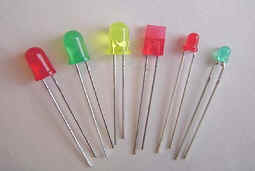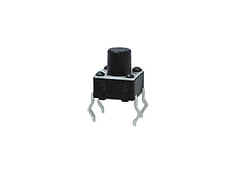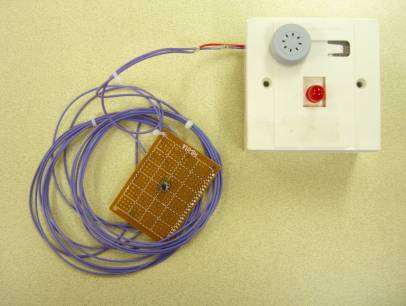Communications Museum of Macao 2007 - Electronic Device Construction Competition
How to make a Morse code telegraph
Principle
In the thirties of the 19th century, Samuel Morse, an American inventor, devised a machine that can transmit signals by using electric pulses, it is the well-known Morse code telegraph. The Morse code, as a series of short pulses (Dots) and long pulses (Dashes), is used to represent the English alphabet, numbers and other symbols. The Morse code is an early form of digital communication. As all the characters are encoded as Dots and Dashes, the transmission is only using two states (ON and OFF), such as short and long pulses of electric, sound or light.
Materials
- Light Emitting Diode (LED) (Figure 1)
- Electric wire (about 15-meter long)
- Battery holder
- Two batteries
- Two switches or push buttons (Figure 2)
- Some pieces of cardboard paper
Procedures
- Make a circuit by connecting the light emitting diode (LED) and the switch in series.
- Connect the one end of circuit to the positive terminal of the battery holder and another to the negative terminal.
- Insert the batteries into the battery holder.
- Toggle the switch or push the button, then the LED will turn on. Otherwise, please check the connection of the circuit. (Figure 3)
- If you extend the wire between the LED and the switch, you can transmit the Morse code by turning on or off the switch from one end (transmitter) to the other (receiver).
Tips to improve the quality of the Morse code telegraph
Using the above-mentioned method, you can make a simple Morse code telegraph. Participants can improve the telegraph according to (but not limited to) the following items:
- Using cardboard or pigment to improve the appearance of your telegraph.
- Improve the switch of the telegraph (you can add other electric circuits) to increase the input speed and simplify the input method.
- Add other circuits and using maximum 4 LEDs in the receiving end to improve the speed of transmission.
- Design your own Morse code for the telegraph to increase the speed of transmission.
|
Figure 1 - Light emitting diode (LED) |
|
|
Figure 2 - Push button |
|
|
Figure 3 - Simple Morse code telegraph |
|
About CMM
Contact US
Others
Other Websites
Number of Visitors:
Last Modified Date: 10/03/2025


